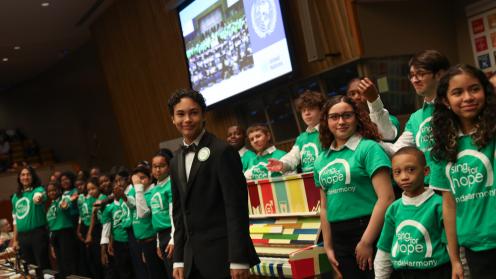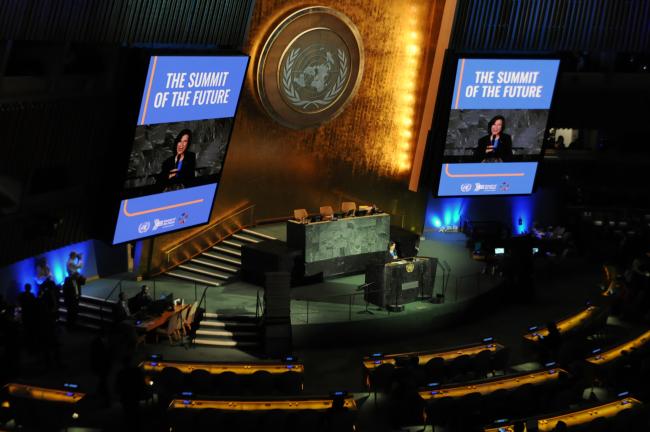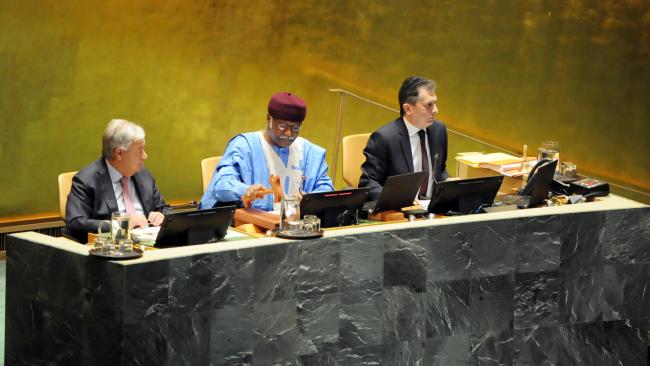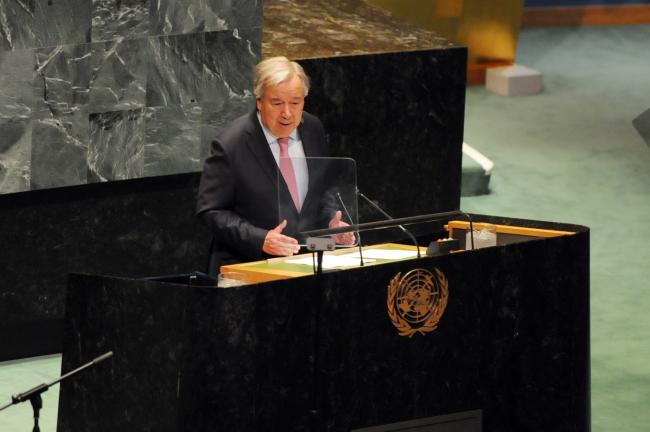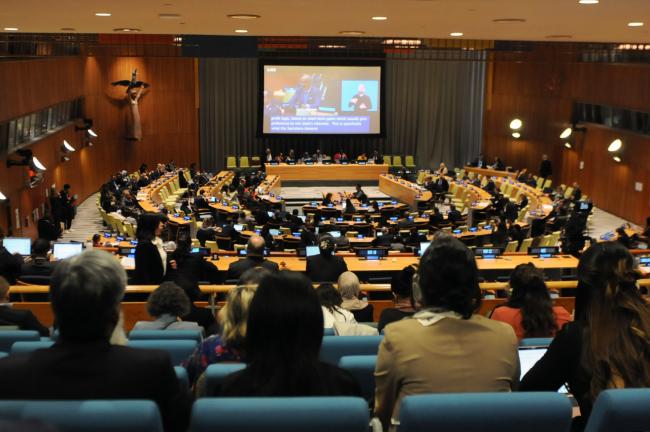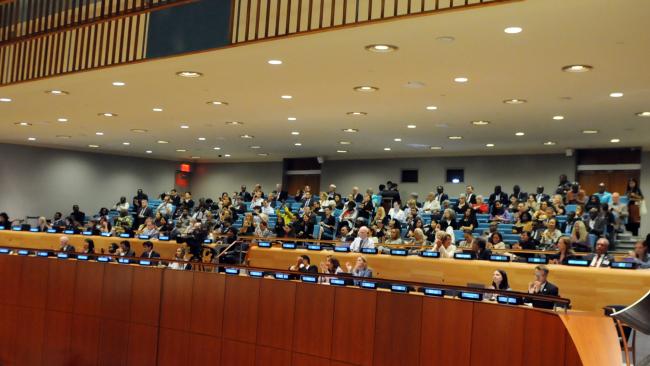The Summit of the Future opened with some drama when the Russian Federation tabled its objection to several paragraphs in the outcome documents: the Pact for the Future, the Global Digital Compact, and Declaration on Future Generations. In the end, after months of negotiations, the Pact was adopted. UN General Assembly (UNGA) President Philémon Yang thanked the Co-Facilitators for steering a complex negotiating process and described the just-adopted Pact as a reflection of “our pledge” to lay the foundation for a sustainable, inclusive, and peaceful global order.
Want to dig deeper into today's talks? Read the full Earth Negotiations Bulletin daily report.
“We are here to bring multilateralism back from the brink,” said UN Secretary-General António Guterres in his opening remarks. He stressed that the authority of the UN Security Council is eroding and “will eventually lose all credibility” unless its composition and working methods are reformed. These views were further amplified by three youth representatives who eloquently described their hopes and dreams for a better future.
More than 100 high-level representatives of Member States and international agencies delivered statements throughout the day, of which 51 were heads of state or government. In parallel, the first two interactive dialogues on key Summit themes took place.
Opening the first dialogue on “Transforming Global Governance and Turbocharging the Implementation of the 2030 Agenda for Sustainable Development,” Co-Chair K.P Sharma Oli, Prime Minister of Nepal, said key global priorities include:
- bridging the Sustainable Development Goal (SDG) financing gap, which amounts to approximately 40% of the annual gross domestic product (GDP) of developing countries;
- reforming the international financial architecture;
- bridging the global digital divide; and
- ensuring adequate and predictable climate financing for the most vulnerable countries.
In their opening reflections, the heads of the World Trade Organization, World Bank, and the International Monetary Fund outlined ongoing reform processes at their respective institutions, highlighting, among other actions, efforts to tackle environmentally harmful policies, scale up climate financing, and harness green growth opportunities.
The second dialogue addressed “Enhancing multilateralism for international peace and security,” with scene-setting presentations by Ellen Johnson Sirleaf, Former President of Liberia and Nobel Peace Prize Laureate; Juan Manuel Santos, Former President of Colombia and Nobel Peace Prize Laureate; and Comfort Ero, President and CEO of the International Crisis Group. Discussions focused on: how to reform the UN Security Council for greater effectiveness, credibility, and legitimacy; the role of women and youth in peacebuilding; the urgency of nuclear disarmament; and the need for inclusive multilateralism as a foundation for global security.
In plenary, Member States repeated calls for global institutions to better represent all countries, with several delegations pointing to lack of progress in addressing Africa’s underrepresentation in the UN Security Council. Others pointed to the urgency to fund sustainable development, tackle climate change, and reduce the gap between developed and developing countries. Prime Minister and Minister for Foreign Affairs and Trade of Samoa, on behalf of the Alliance of Small Island States, highlighted the existential threat of climate change to small island developing states.
A common theme that weaved through interventions was a focus on maintaining peace, protecting state sovereignty, and preventing powerful nations from dominating smaller states, with many criticizing how international law is applied unequally. Egypt, among many others, pointed out that “impotence of the international community” in tackling conflicts in the Middle East is a serious test of the multilateral system.
To receive free coverage of global environmental events delivered to your inbox, subscribe to the ENB Update newsletter.
All ENB photos are free to use with attribution. For this event, please use: Photo by IISD/ENB - Diego Noguera
